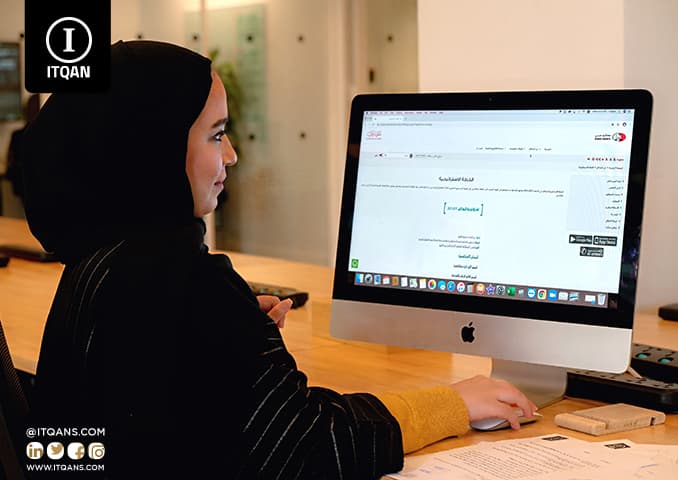The UAE is one of the world’s leading destinations for establishing businesses, thanks to its dynamic and stimulating business environment. The UAE combines a combination of political stability, advanced infrastructure, and streamlined business processes, making it an ideal environment for investors and entrepreneurs. Whether you are thinking of launching a new company, expanding your business, or entering the regional and international market, the UAE offers you the opportunities you need to achieve your business goals.
Establishing a company in the UAE allows you to benefit from a variety of options, from free zones with tax privileges and exemptions, to economic zones that provide investment and legal facilities. In free zones, you can enjoy full ownership of the company without the need for a local partner, in addition to facilitating the incorporation and registration procedures. In non-free zones, you usually need a local partner who owns 51% of the shares, but this gives you access to wider markets within the UAE.
The process of establishing a company in the UAE includes specific steps such as choosing the type of company, submitting the required documents, and obtaining the necessary licenses. These procedures vary depending on the type of business activity and the location you choose. Although requirements vary depending on the type of company and location, the facilities and services provided help to speed up and simplify the process.
With such an effective and supportive regulatory framework, the UAE is an ideal choice for any investor looking to successfully enter the market and achieve their business goals in a sophisticated and secure environment.

جدول المحتوى
ToggleHow to establish a company in the UAE
Establishing a company in the UAE requires following specific procedures according to local laws and regulations. Here are the general steps to establish a company in the UAE:
1- Choose the type of company: Choose the type of company that suits your needs, such as a sole proprietorship, joint stock company, limited liability company, or partnership.
2- Choose the company name: Make sure that the name you choose for your company is unique and complies with the UAE’s company naming laws.
3- Determine the location and business activity: Determine the location of the company and the type of business activities you wish to practice.
4- Prepare the necessary documents: Prepare the required documents such as passport, personal photos, address confirmation documents, etc.
5- Request a company license: Apply for a license to establish the company in the UAE.
6- Complete the legal procedures: Complete the legal procedures necessary to establish the company, such as signing the necessary agreements and determining the company structure.
7- Determine tax responsibilities: Determine the registration for value-added tax (VAT) if the company is eligible for this.
8- Open a business bank account: Open a business bank account in the company’s name at an accredited exchange.
9- Register the company: Register the company with the competent authority and the Department of Economic Development in the emirate in which you plan to establish the company.
10- Compliance with local legislation: Ensure compliance with all local legislation and regulations in the UAE to avoid any future legal issues.
Company formation fees in the UAE vary depending on the type of company, location, and business activity. In general, the basic fees that you may need to pay include:
Registration fees: Paid to officially register the company with the relevant authorities.
Licensing fees: Includes the costs of obtaining the necessary trade license or permits.
Rental fees: Related to renting the office or premises where the company will operate.
Bank account opening fees: Opening a bank account in the name of the company may require the payment of some fees.
Visa fees: Includes residence visa fees for owners and employees.
Translation and notarization fees: If there is a need to translate and notarize documents.
Documents required to set up a company in the UAE
To set up a company in the UAE, you will need to provide a set of basic documents. Documents can vary depending on the type of company and location (whether in a free zone or non-free zone), but often include the following:
Shareholders’ and directors’ passports: Clear, coloured copies of the shareholders’ and directors’ passports.
Residence visas: If the shareholders or directors are residents of the UAE, you will need copies of their residency visas.
Personal photographs: Recent photographs of the shareholders and directors, usually with a white background.
Memorandum of Association: The company’s articles of association, which include basic details about the company such as name, activity, shareholders and directors.
Partners’ agreement: An agreement between the partners that sets out the rights and obligations of each party.
Company address: Proof of the address from which the company will operate, such as a lease or a letter from the landlord.
Bank report: In some cases, you may need to provide a letter from the bank proving that the shareholders have deposited the capital.
Special permits: Some business activities may require special permits or licenses from the relevant authorities.
Business Plan: In some cases, you may be asked to submit a business plan outlining how the company will be managed and its objectives.
Additional Documents: Depending on the type of company and its activity, you may need to submit additional documents, such as certificates of qualifications for shareholders or directors.
Types of companies that can be established in the UAE
In the UAE, there are several types of companies that can be established and registered according to local legislation. Here are some of the main types of companies that can be established in the UAE:
Sole Proprietorship: This type of company can be established by a single individual. Liability is individual and personal for the single owner.
Partnership: It consists of a group of partners who share in the management of the company and monitor its business, costs and profits.
Limited Liability Company (LLC): A company that combines elements of a partnership and a joint stock company. The members of the company enjoy limited financial protection.
Joint Stock Company: A joint stock company is a common form of public company where the company’s capital is divided into shares that can be sold to the public.
Branch of a Foreign Company: A foreign company can establish a branch in the UAE to represent its business in the country.
Free Zone Company: Operating in a designated free zone, offering benefits such as full foreign ownership and no tax on profits.
Offshore Company: Used for investment and asset management purposes outside the UAE, and is often tax-exempt.
Concluding our article on establishing a company in the UAE, we find that the UAE is one of the best investment destinations in the world thanks to its advanced and stimulating business environment. Thanks to its pioneering economic strategies and strategic geographical location, the UAE offers significant competitive advantages to investors and startups. Through its diverse free zones, the UAE provides multiple options that suit various commercial, industrial and service activities, which contributes to enhancing growth and innovation.
Establishing a company in the UAE can be a smooth and fruitful experience, thanks to the modern infrastructure and simplified bureaucratic procedures. Investors can benefit from incentives such as tax exemptions and 100% foreign ownership, which contribute to reducing costs and enhancing returns. In addition, the UAE provides a high-quality business environment, making it easier for companies to achieve their business goals effectively.
It is essential for investors to be aware of all legal and commercial requirements, such as choosing the right type of company, obtaining the necessary licenses, and understanding the costs associated with establishing and operating a business. Consulting local experts is an important step to ensure compliance with all regulations and reduce potential risks.
Ultimately, the UAE is an ideal platform to start and expand a business due to its many advantages. By understanding the requirements for incorporation and taking advantage of the available opportunities, investors can achieve success and sustainability in a fast-growing and renewable market. The UAE remains, without a doubt, a distinguished investment destination that deserves the attention of any investor seeking long-term success in the business world.
The most important frequently asked questions about establishing a company in the UAE
Can foreigners own 100% of the company’s shares?
Yes, in free zones, foreigners can own 100% of the company’s shares. However, in non-free zones, there must be a local partner who owns 51% of the shares.
What are the documents required to establish a company?
The documents include passports for investors and directors, articles of association, business plan, previous company registration certificate (if applicable), and office lease contract.
How long does it take to establish a company in the UAE?
The incorporation process usually takes from a few days to several weeks, depending on the speed of preparing the documents and approving the application.
Can the company conduct business activities outside the UAE?
Yes, companies can operate outside the UAE, but may need to obtain additional licenses or comply with local regulations in other countries.
What is the license renewal process?
Renewing a license requires submitting a renewal application, submitting the required documents, paying fees, and complying with ongoing legal and business requirements.
Do I need work visas for employees?
Yes, after establishing a company, you will need work visas for employees and these are available by submitting an application to the relevant authorities.

















